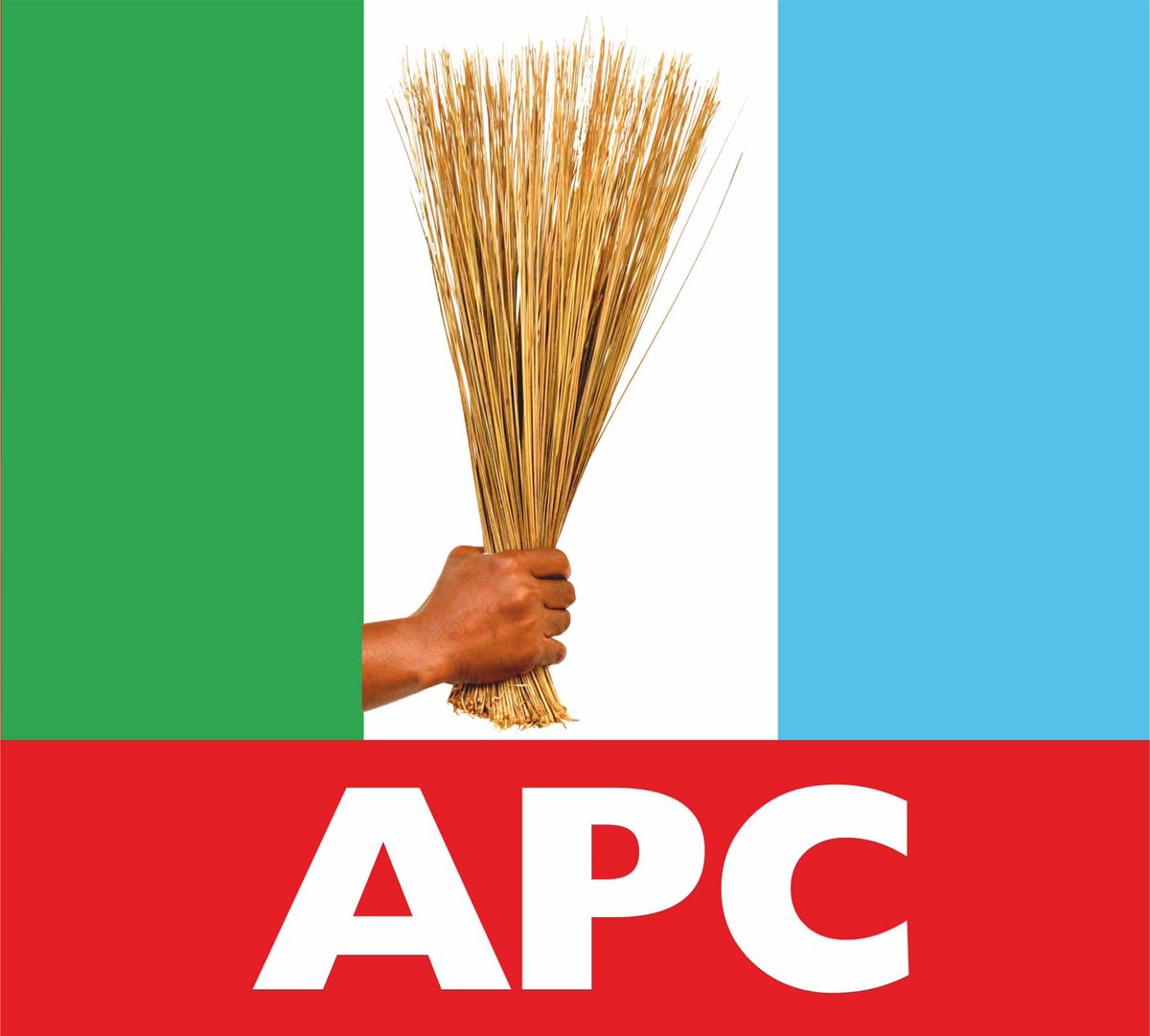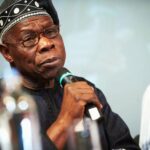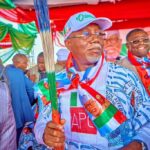First, I applaud the President, Muhammadu Buhari, for his government’s successful repatriation of over 1100 Nigerians from the Ukraine war. Overall, it was a commendable piece of work.
Sadly, many of our young people in Ukraine chose to take their chances with the wolves, the racists, and the bullets, a reflection of what our political elite has made of the concept of “home.” How attractive is home when the president is far more comfortable on another leader’s soil, one where he was once told how “fantastically corrupt” his home is?
How inviting is “home” when his wife only shows up there for the cameras; and she must be serenaded abroad at public expense on her birthday by shameless wives of the nation’s governors in a mansion whose ownership is unknown to Nigeria?
But keep in mind: Buhari gave $8.5million for the evacuation of 5000 Nigerians, although it is unclear that he really knows that he gave, or what he gave. Nonetheless, just over 1100 Nigerians were brought home, each of whom was given a miserly $100, making for overall direct disbursement of a little over $110,000. I predict that in about two years from now, the Auditor-General of the Federation (bookmark this!) will be screaming into the wind about this episode.
Did you see the video of yet another Nigeria train in yet another drama? It was last Thursday, one of the Ibadan-Lagos trains running out of fuel in the middle of nowhere.
How on earth does that happen? Glad you asked.
“The train gauge was not reading correctly, so by the time [it] started moving, the driver discovered that there is no sufficient diesel in the train,” Nigeria Railway Corporation Managing Director, Fidet Okhiria, explained.
Fuel gauge? Insufficient fuel? A short distance train that is methodically refueled at the end of every run?
Okhiria, sounding as though he was talking about a Lagos-Aba bus, explained: “The train gauge had an issue while the engineers thought the diesel in the train tank would take them to Lagos.”
Excuse me, but for nearly 25 years I have been riding the same diesel trains. Breaking down for refueling is unheard of, not to mention for equipment that is barely eight months old. Nigeria’s trains were delivered only in October 2019 and July 2020.
Readers may recall that these same trains have also repeatedly broken down between Abuja and Kaduna. On the Itakpe-Warri line recently, workers delivered a surreal performance of using tree branches to battle a train fire. No Minister resigned.
That one sounds almost like Nigeria’s ruling All Progressives Congress (APC), which on Tuesday fired off a warning as to how the 2023 elections might unravel: without an election or an appointment announced, the party curiously acquired a new head of its caretaker committee. His name: Abubakar Bello, the Niger State governor, who drove into the party secretariat and declared himself the new boss.
Prior to his arrival, the chairman of the committee was Yobe State Governor Mai Mala Buni, who, as the party’s crisis mutated, received the plum trophy in June 2020 after the party dissolved the national working committee.
First, however, you may wish to remember that APC was cobbled together only in 2013 as an alliance of the All Progressive Grand Alliance, the Action Congress of Nigeria, the All Nigeria Peoples Party, and the Congress for Progressive Change.
The new party arrived with an overloaded shopping basket, and I wondered if it had a heart to match its words.
The party crystallized that basket into its 2014 APC Manifesto, the sharp and powerful sword by which it hoped to slay the PDP dragon. It promised, APC promised “Relief, Recovery and Reform,” including:
• three million new jobs a year; healthcare for all; and guaranteed free education;
• Triple education spending over next 10 years, from the current .5% to 24.5%;
• Immediately increase the proportion of Federal spending on healthcare from 5.5% to 10%;
• Employ at least an extra 100,000 police officers and establish a properly trained and equipped Federal Anti-Terrorism Multi-Agency Task Force to destroy Boko Haram and any form of insurgency;
• Create a functionally independent anti-corruption agency, with adequate and predictable funding and full prosecutorial powers and free from political interference;
• End immunity from prosecution for sitting politicians.
These are just a few of what it campaigned on but fled from. Internally, however, it could not flee from itself, and its sits now on its own vomit and excrement, with egos clashing with ambitions, machinations clashing with manipulations, swordsmen clashing with knife-wielders, incompetence clashing with emptiness.
Who “appointed” Bello to party office last week? Nobody appeared to know. There was no announcement. Bello did not win an election. There was no gathering which fulfilled any known civil, let alone legal, requirement.
But this is the exact mindless and unfeeling idiocy by which APC ran itself aground in just its first year, and for which I denounced it in February 2017. In 2020, I argued that the party had undertaken an unprecedented political swindle.
Now, how did prominent party officials interpret Bello’s coup d’etat? According to Kaduna State governor Nasir El-Rufai, Buhari it was who had instructed the coup.
“The president held a meeting with [APC governors] and gave us a clear directive and responsibilities and went into his waiting chopper at the airport.”
It seems that Buhari deployed his “body dialect” on his way to London. But neither Buhari’s body language nor the words of his tongue nor Buhari himself is law. Yet, according to El-Rufai, “no fewer than 19 governors of the party and one deputy governor ‘unanimously’ agreed to carry out the directive of the president.” He accused the three remaining governors of being responsible for the “fake news” that Buni has not been removed.
In turn, Ondo State governor Rotimi Akeredolu dismissed those three as “Yahoo-Yahoo” governors, saying they were working with Buni to circumvent the will of the party majority.
It remains to be seen whether APC’s consistent avoidance of principle and the law, in preference for raw political muscle, will help in its hour of stress. Members of Buni’s camp were at the weekend affirming that Buni, who is out of the country, is still the chairman.
On Wednesday, Bello inaugurated a vast 86-person committee to plan the party convention; Buni was not listed. On Thursday, the APC caucus in the Senate declared the crisis in the party to be “over,” and that Buni remained the substantive Chairman.
In turn, by Friday, Nigeria’s electoral commission (INEC), was treating Bello like an interloper. It rejected the invitation to attend the party’s National Executive Committee meeting precisely because it was not signed by chairman Buni and National Secretary John Akpanudoedehe, as required by the Commission’s Regulations and Guidelines for Political Party Operations (2018). It also gave the party a crash course on law: specifically, the Electoral Act 2022.
In this, Buhari suffered two grievous political losses in 24 hours: the first in the electoral law amendment he sought, and then in the party he heads. No applause there.
The party, which has now proved to be more PDP than PDP, has paid nothing. Not yet.
This column welcomes rebuttals from interested government officials.
• @Sonala.Olumhense

 Join Daily Trust WhatsApp Community For Quick Access To News and Happenings Around You.
Join Daily Trust WhatsApp Community For Quick Access To News and Happenings Around You.


